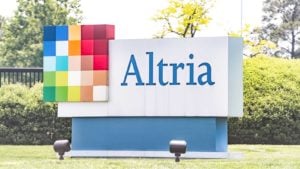Income investors are facing negative real returns as inflation rates soar. Not only is wage growth falling behind inflation, but cash savings are earning almost nothing in bank accounts. Investors who waited years for interest rates to rise and pay a better return now cannot wait. However, those who found high-yield stock gems have earned a phenomenal return over the last two years.
When the pandemic sent the market to panic lows, income stocks went on sale. The share prices of high-yield stocks dropped. But as the markets normalized, those stocks appreciated.
That said, investors seeking income still have to choose the right names; you should not chase stocks with poor free cash flow (FCF) payout ratios, for instance. If the business worsens, that could threaten the future dividend.
So, without further ado, here are seven high-yield stock gems to consider:
- Abbvie (NYSE:ABBV)
- British American Tobacco (NYSE:BTI)
- Altria (NYSE:MO)
- Medical Properties Trust (NYSE:MPW)
- Pfizer (NYSE:PFE)
- AT&T (NYSE:T)
- W.P. Carey (NYSE:WPC)
Abbvie (ABBV)

Investors were worried when health regulators applied a fresh warning on Abbvie’s arthritis drug. The U.S. Food and Drug Administration (FDA) issued a stern warning — or “black box” — on Rinvoq, saying that the drug “carries an increased risk of blood clots and death.”
Rinvoq is one of many blockbuster drugs for Abbvie, however. On Oct. 12, Health Canada approved the use of Rinvoq for severe atopic dermatitis.
This skin disease is a multi-billion-dollar revenue opportunity. Patients may take the once-a-day JAK inhibitor orally as an alternative to less effective, steroid-reliant treatments. Other firms offer biologics, which require injection. All in all, Abbvie has a good chance of growing its market share.
When the company acquired Allergan, it boosted its drug pipeline. It also added debt to the balance sheet. Fortunately, though, drug sales add plenty of free cash flow to pay for a growing dividend. Abbvie may also pay down its debt and cover the interest payments associated with the debt.
British American Tobacco (BTI)

The next entry on this list of high-yield stocks is BTI. On Sept. 30, British American Tobacco won a ruling from the U.S. International Trade Commission (USITC), which said that Philip Morris (NYSE:PM) and Altria must stop the sales and imports of Iqos.
BTI stock bounced sharply after this news. But even after that, the name still pays a generous dividend yield of 8.25%. It also has an annual payout of $2.96.
That said, BTI has still lost its case against Philip Morris in other regions. Plus, since Philip Morris will appeal the USITC decision, investors cannot rely on BTI benefiting from exclusive e-vape sales in the States.
Case in point, the recent rally looks as if it will continue to fade. There are a bevy of legal actions currently active between BTI and Philip Morris.
Still, all of this distraction creates uncertainty for investors and a discount on the stock. All told, it may be best to assume that the two firms will form a worldwide cross-licensing agreement. This assumption can help investors remove the unknowns. And if it does happen — which it likely will — BTI stock should rebound.
Altria (MO)

Altria, like BTI, is currently out of favor. MO stock slumped in April, June and again in September. Each time, the stock bounced right back.
The stock pays a dividend in the 8% range. In August, the firm also hiked its dividend to 90 cents per share.
To improve its balance sheet and shed its non-core businesses, Altria should sell its investment in Anheuser-Busch InBev (NYSE:BUD). Altria’s stake in InBev is worth $13 billion. The company could share the cash from the sale of that ownership through a special dividend, which would cause MO stock to spike temporarily. Alternatively, it could just pay down its debt.
This latter option would be the better use of the cash. The Federal Reserve is still threatening to raise interest rates. Although the Fed is hesitant to do so, it cannot hold off much longer. If Altria lowers its debt, its interest costs will fall. The firm could then pass its savings to investors by hiking up the dividend.
On Wall Street, analysts rate Altria as a “buy.” The average price target is almost $53.
Medical Properties Trust (MPW)

Right now, Medical Properties Trust is stuck in a tight trading range between $20 and $22.
On Sept. 22, the company sold 500 million euro 0.993% senior notes due in 2026. By swapping debt that costs 4% in interest, MPW stock will face lower costs, benefitting investors.
Readers may wonder who would buy debt that pays less than 1% in interest. Since the European Central Bank introduced low or negative yields, that interest rate is actually appealing.
On Jul. 29, Medical Properties posted second-quarter results with strong net income of 19 cents per share. The per-share normalized funds from operations were 43 cents.
Further, the firm completed $215 million worth of acquisitions in the quarter. It bought four general acute care hospitals and also acquired Kings Park Hospital, located in Scotland. Finally, it agreed to sell Capital Medical Center in Washington state for $135 million.
The steady results from this REIT suggest that yield-hungry investors will get a dividend hike soon. In the last quarter, its dividend was 28 cents, compared to 27 cents from a year ago. All in all, MPW is a good pick among high-yield stocks.
Full story on InvestorPlace.com




Leave a Comment